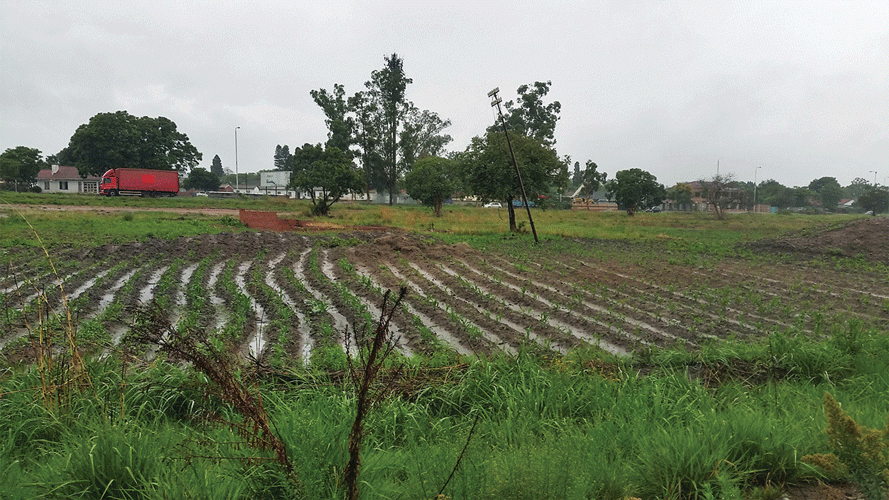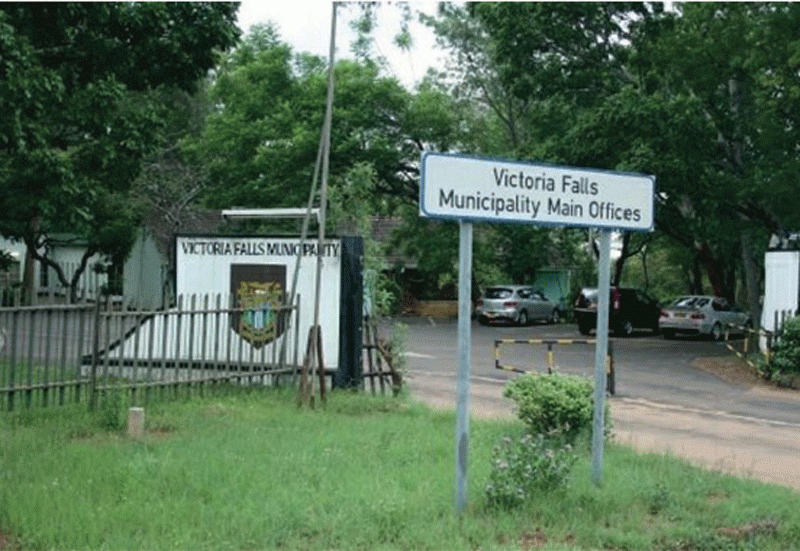
EACH year, thousands of migratory birds such as the colourful African pygmy goose, maccoa duck and African spoonbill stop at the Cleveland Dam wetland in Zimbabwe to breed and rest.
The wetland is the largest protected area in the country’s capital, Harare, and a key biodiversity spot.
But in recent years, it’s come under threat from sand mining, development, and unsustainable water withdrawal by local businesses.
“The fact that the wetlands are falling to ruin means that the link between humanity and wetlands is not balancing. The continued degradation of wetlands has eroded their connection to humanity,” says Jimmy Mahachi (JM), founder of the Cleveland Action Alliance, a community-based organisation.
Mahachi has spent a decade advocating for his community’s right to water and the preservation of the Cleveland Dam, one of the country’s seven Ramsar wetlands.
Some residents of the New Mabvuku suburb, where Mahachi lives, haven’t had running water for more than 30 years.
The community relies on groundwater from wells and boreholes that are replenished by the Cleveland Dam wetland.
Because of its overexploitation, less freshwater reaches New Mabvuku.
- We urgently need to save our wetlands
- Feature: Human activity threatens Zimbabwe’s wetlands
- Cartoon: December 19, 2022 edition
- 103 wetlands put under sustainable management
Keep Reading
Instead, they have to collect water from unprotected, even contaminated, sources.
Mahachi’s complaints are frequently ignored. Instead, he’s received threats for speaking out about the water crisis in his community.
World Wetlands Day, held on February 2 each year, commemorates the historic adoption of the Ramsar Convention on Wetlands in 1971, announced in the Iranian city of the same name, to halt the loss of this cradle of water and biological diversity.
This year’s theme was Protecting Wetlands for Our Common Future, underscoring the importance of bold action to protect wetlands for the welfare of all people, including future generations.
Parties to the convention will hold their next summit, COP15, at Zimbabwe’s Victoria Falls from July 23-31.
In an interview with Mongabay’s Aimee Gabay (AG), Mahachi spoke about the problems his community faces, the pressures on environmental activism in Zimbabwe, and the vulnerable connection between humanity and wetlands.
The following interview has been edited for length and clarity.
AG: At times, the importance of wetlands as vibrant ecosystems of life, either in the form of swamps, peatlands or marshes, is overlooked. What is the significance of the Cleveland Dam wetland for your community?
JM: The Cleveland Dam wetland is critical in the sense that it is a primary water source in one of the seven Ramsar sites of Zimbabwe.
For my community, which is adjacent to it, the New Mabvuku community (a suburb which has gone for some time without safe water from the council), it is very important because it is a water source.
One of the ecological benefits is that it houses biodiversity.
The biodiversity helps in the water purification process and this reduces the water treatment costs. Also, the biodiversity includes some animals kept at Haka Game Park, which is leasing part of the wetland.
The animals can be used as tourist attractions.
AG: Do you think the connection between humanity and wetlands is being lost? What do wetlands mean to you?
JM: A wetland is a piece of land that is saturated by water either seasonally or perennially.
Some cultures use wetlands for religious purposes, but now, the fact that the wetlands are falling to ruin means that the link between humanity and wetlands is not balancing.
The continued degradation of wetlands has eroded their connection to humanity.
Our human activities are also disturbing the well-being of the wetlands.
Wetlands mean water to us.
The Mabvuku residents have gone, in some parts of the suburb, for more than three decades without tap water from the council.
A wetland to me means water, and its disturbance means the disturbance of water.
In the Constitution of Zimbabwe, it’s very clear that water is a basic human right.
Wetlands are very sacred places, according to our religion, the Shona culture, or the Bantu people of Zimbabwe.
If a young person dies, he or she is buried in a wetland.
Now, the fact that human activities are being done on these wetlands negatively affects the religious aspect.
The religions are not being followed.
And also, wetlands have what we call springs. Those springs are used by some traditional healers in our area.
The water is treated as sacred, but due to the disturbances, the sacredness of the wetland is no longer of effect.
Future generations need to benefit from wetland protection for continued water provisioning and other ecological benefits.
The inclusion of youths in our conservation efforts is a practical approach toward this mindset.
AG: Industrial and material development is seen as a critical need for Harare’s growing population. How do you think the government can balance this need with the need to protect water resources and the area’s biodiversity?
JM: Development is very critical. We need shelter and we need houses.
But the government has introduced some tools for the management of wetlands that include the ecologically sensitive areas, including the wetlands map and the wetlands policies and guidelines.
These are very critical in terms of the management of these water sources.
The government can develop, but it has to leave ecologically sensitive areas like wetlands alone because they are pivotal in water provisioning.
In this regard, I’m simply saying that the government can develop in other areas which are not ecologically sensitive like wetlands.
AG: How has the water crisis impacted your community in Mabvuku?
JM: Mabvuku is one of the driest suburbs in Harare.
We have water boreholes which have been drilled by non-governmental organisations or community well-wishers.
But boreholes are not adequate enough to cater for the growing population of Mabvuku at some water points.
We have water barons who will fetch water from these boreholes and resell the water to residents at exorbitant prices.
AG: New Mabvuku has not had running water for more than 30 years and residents have to collect water from unprotected sources which are allegedly contaminated. Has the health of anyone in the community been impacted by the water crisis?
JM: Definitely, yes. We have had and still have some cases of waterborne diseases like typhoid and diarrhoea.
Health, of course, is being affected because some resort to unprotected resources like wells for potable water.
AG: Why did you decide to defend the wetlands?
JM: The first port of call for me to be a water activist, or a wetland protection activist, is due to the critical water shortages in my area.
According to Section 77 of the Constitution of Zimbabwe, water is a basic human right, so we have been approaching the relevant authorities for them to provide us with portable water, but they are not.
This is a violation of my right to water.
Also, this activism is out of my passion for the protection of these water sources, which has prompted me to do this water sources and wetland protection work.
AG: Wetlands are a political topic in Zimbabwe, and several environmental defenders have received threats or been challenged in court for their activism. What threats or challenges have you and your colleagues faced while carrying out your work?
JM: I’m living testimony to the threats from some people who claim to be politicians, and they claim to be creating employment by disturbing the water sources like the Cleveland Dam catchment area.
There is massive sand mining going on as we speak, although there have been some interventions from the relevant authorities.
The threats are from individuals who are enemies of progress, who do not want activists to do their [activism] work.
At one point, I got an anonymous call from someone who asked to meet me at a certain place to discuss business.
Upon arrival, I was told that I should not raise my voice about the sand mining on the Cleveland Dam wetland.
The man claimed that he had been sent by a local prominent politician to do sand mining on the wetland as part of creating employment for the youths in the area.
I responded that there was nothing wrong in creating employment, but highlighted the negative effects of sand mining on wetlands.
I also reported the matter to the Environmental Management Agency.
It’s business to them because they go and sell the sand at very high prices.
Some individuals use the names of prominent politicians to gain knowledge, but the prominent politicians may not be aware of their actions on the ground.
We are getting a lot of threats day in and day out from these so-called politicians.
AG: What are your thoughts on the upcoming Ramsar summit taking place in Zimbabwe in July this year? Do you think this will lead to any positive changes?
JM: Yes, if we speak with one voice we are going to achieve our goals.
It’s a milestone for us Zimbabweans because we are in a position to mingle with other international players in the protection of our Ramsar sites and other important water sources, other wetlands.
It is an opportunity for us to serve our story, our Zimbabwean story.
It is an opportunity for us as Zimbabweans to demonstrate that we can do better in the protection of our water sources.
And it is also an opportunity to network with relevant partners in other agencies worldwide.
AG: If the Cleveland Wetland were gone tomorrow, how would this impact the lives of nearby communities?
JM: It will further worsen the situation in terms of water provisioning. It will mean that lives might be lost in the process because the Cleveland wetland is very critical to the people of Mabvuku.










